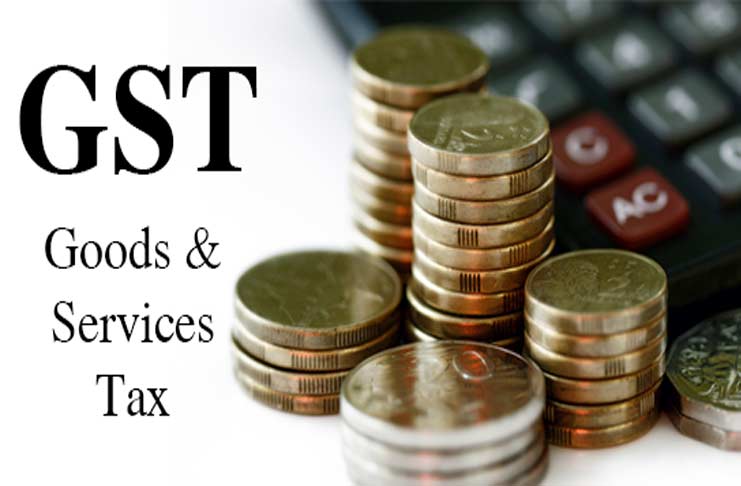Goods and Service Tax (GST)
Goods and Service Tax (GST)
GST 9C
Obtain the annual GST reconciliation statement that the relevant taxpayers have submitted. Every organization with an annual gross revenue more than INR 5 crore is subject to it. Any discrepancies discovered throughout the reconciliation process will be detailed in this statement, along with their underlying causes.
GST Nil Return Filing
You may file a “Nil” return for a given tax period if you did not make any outward supplies of goods or services (often referred to as sales), did not receive any inward supplies of goods or services (commonly referred to as purchases), and did not owe any taxes during that particular tax period. A penalty will be imposed up until the filing is finished if the taxpayer fails to submit a NIL return.
GST Return Filing
Every taxpayer who has registered for GST (and hence every GSTIN) must file with the tax administration authorities. It is a record that lists all earnings, sales, and/or outlays, as well as acquisitions, that are related to the company. The GST department requires all taxpayers, including producers, suppliers, dealers, and consumers, to file their tax returns each year.
GSTR-9 Annual Filing
All GST-registered taxpayers are required to submit GSTR-9 annually. A financial year’s worth of outgoing and incoming supply, tax obligations, and input tax credits are compiled annually. All monthly or quarterly consolidated summaries completed by any taxpayer are included in the GSTR 9 forms.
GST LUT Filing
Prior to providing products or services for export or SEZs, any registered person who wishes to do so without paying integrated tax must submit a Letter of Undertaking (LUT). Two independent and trustworthy witnesses’ names, addresses, and occupations must be included. Prior to submitting the LUT, the taxpayer must additionally pick all of the self-declaration points.
GST Cancellation
If the GST regulations do not apply to you or you are closing your business or profession, you may cancel your GST registration. It can also take place if the tax officer makes a cancellation call in case of non-compliance. If you want to revoke their GST registration, you must fill out Form GST REG-16 and send it to the GST Department.

Goods and Service Tax (GST)
The Goods and Services Tax Law in India imposes a thorough, multi-stage, destination-based tax on each value addition. GST is the indirect tax imposed on the provision of goods and services, to put it simply. Numerous former indirect tax regulations in India have been superseded by the GST legislation, and SR Prof Advisory LLP offers an exhaustive range of GST services.
- Getting GST registered
- Creating and submitting GST returns
- Providing GST advice
- Updates on legislative changes
- Assist with GST refund applications
- Consultation with tax authorities
To reduce your compliance load and concentrate your attention on expanding your business, outsource your GST compliance to SR Prof Advisory LLP. By working with us, you may access real-time company data from anywhere at any time while having your GST compliance upheld on the ledgers GST platform.

GST Registration Eligibility for Taxpayers
GST Registration does not have a pan-India eligibility. It is only applicable to eligible businesses as per turnover limits prescribed under Section 22 of the Central GST Act, 2017. However, section 24 of the Act makes it mandatory for certain businesses to obtain GST registration irrespective of their turnover limits. Each of these businesses are listed below as per their eligibility criterias.
Businesses eligible for GST Registration in India include:
-
Those dealing in merchandise with aggregate annual turnover exceeding Rs.40 Lakhs
-
Those providing services with aggregate annual turnover exceeding Rs.20 lakhs
-
Those operating in North Eastern and Hilly states with aggregate annual turnover exceeding Rs.10 lakhs
-
E-commerce operators/ aggregators
-
Businesses selling on e-commerce platforms
-
Casual Taxpayers
-
Business non-resident in India
-
Importers & Exporters
-
Taxpayers under GST Reverse Charge Mechanism
-
Taxpayers registered under the older tax regime
-
Businesses engaged in Inter-state supplies of goods & services
-
Service Providers providing information & online databases services (OIDAR)
What Businesses are Exempted from GST Registration in India?
Section 23 of the CGST Act, 2017 exempts certain businesses completely from the requirement of obtaining GST Registration in India. The exemption is applicable despite these businesses exceeding the prescribed turnover limits. We have listed all such exemptions below.
GST Registration Checklist & Documents
GST Registration in India cannot be obtained without certain prerequisites and documents. The table below contains two sections. The first one lists all the prerequisites, and the second one lists all the documents required for GST Registration in India. If you qualify for GST, you must meet all these GST registration requirements before submitting your application.
